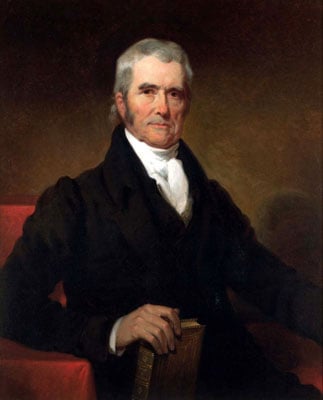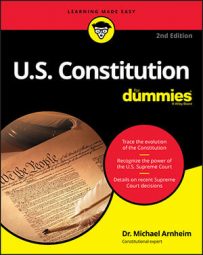Chief Justice John Marshall (see figure), writing for the Court, held that
- Madison’s refusal to deliver the commission to Marbury was unlawful. This is undoubtedly correct.
- But the Supreme Court did not have the power to make such an order. This is not actually correct.
- Because the law that purportedly gave the Supreme Court this power was itself invalid. This is also probably wrong.
- And the Supreme Court had the power to strike down invalid laws. Yeah? The Constitution sure doesn’t say so, although Alexander Hamilton in the influential Federalist Papers, written in 1788, assumed that the Court had this power.
 Source: Henry Inman — Virginia Memory
Source: Henry Inman — Virginia MemoryChief Justice John Marshall, best known for his leading opinion in Marbury v. Madison (1803).
This judgment is an excellent example of Marshall’s “twistifications” (Thomas Jefferson’s term). Note that Marshall should have recused himself from hearing the case anyway because the whole case arose out of the failure of President John Adams’s Secretary of State to give Marbury his commission. And who was that Secretary of State? Why, none other than John Marshall himself!
Here’s what Jefferson said about Marshall’s new doctrine of judicial review: “The opinion which gives to the judges the right to decide what laws are constitutional and what not … would make the Judiciary a despotic branch.”

